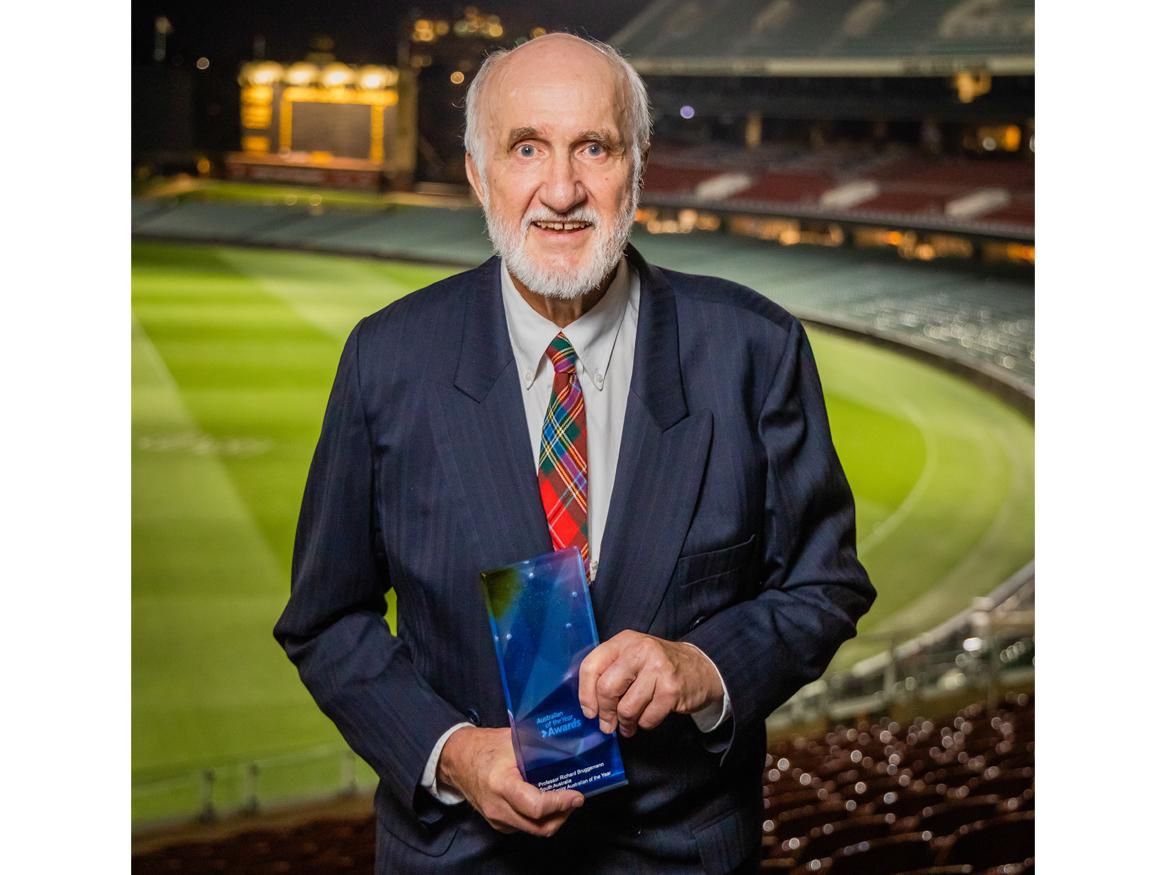Leading through Learning

Photo by Salty Dingo.
Amongst this year’s deserving winners of Australian of the Year Awards 2021 is alumnus Adjunct Professor Richard Bruggemann, named South Australian Senior of the Year 2021 and national finalist.
Richard has spent more than thirty years advocating for people with intellectual disabilities and their families. During that time, he has provided expert advice to governments on disability services, legislation, inclusion and rights; has volunteered on many non-government boards and committees; and written countless articles on topics of concern for the disability community.
When it comes to being recognised for his work, Richard humbly said, “working with people with intellectual disabilities, their families, getting things sorted out for them, working with really good staff, helping people to have success, that was always a huge reward in itself.”
While initially reticent about receiving the award, Richard said, “Where I’ve got to now is that it’s a bit of icing on an already lovely cake – but what it is also, is an opportunity to talk about something that often doesn’t get talked about, and that’s been the key thing for me.”
Richard was introduced to people with intellectual disabilities at a young age, with both of his parents working at the Piddington School at the now closed Strathmore Centre for people with intellectual disabilities.
He gravitated to working in the area because he felt people with intellectual disabilities and their families “had a reputation that they didn’t deserve.”
“They were just people and they had difficulties like we all do,” said Richard.
“And the more that I came to meet people with intellectual disabilities and their families, the more that I learned from them, and the more I saw that they are a group that we hadn’t given opportunities to. We had segregated them, we had put them in places where they were largely hidden from the community.
“I just found qualities in them that I thought, ‘I hope I measure up to those standards’,” Richard said.
Early in his career, Richard discovered the importance of learning through listening. He learned this as CEO of the Intellectual Disability Services Council, which he helped to establish in 1982 while working at the SA Health Commission.
“When you’re an upwardly mobile young bureaucrat, just appointed as a CEO, you think you know everything. And then you start to find out that you actually don’t know a great deal at all, and it’s the people with intellectual disabilities and their families who are teaching you,” Richard said.
“I think if you want to be a leader you have to be a learner,” he said.
As the CEO of the Council, one of the things Richard was determined to find out was what people with intellectual disabilities actually wanted. One of the ways Richard discovered this was by manning the Council’s after-hours phone service with other senior staff each night, a job he did with them every day for eight years while CEO. “You only know what people want if you get to know them,” Richard said.
Richard recalls one of the phone calls he took where a voice at the end of the line said “I’m lonely”. He went to this person’s house a couple of days later and discovered the “house was neat as a pin” but that the person had “no fellowship with neighbours, friends or connections in the community.”
“So they were the things that were important to learn. And at the end of the day, they were the same things that were important to you or me,” Richard said.
Last year, Richard was part of the State Government’s special taskforce investigating the tragic death of cerebral palsy sufferer, Ann Marie Smith. He was also appointed to a new government role to assess the temporary orders to protect people living with a cognitive or mental impairment from the spread of the COVID-19 virus.
With Ann Marie, “what we found was failures at every level of the system. So when they did her National Disability Support Plan (NDIS), they should have seen that she was vulnerable and put in place some mechanism to monitor how she was going.”
While there remains a lot of work in reshaping the NDIS to better safeguard vulnerable people in our communities, Richard said there are also things we can do as individuals.
“Being more neighbourly and getting to know our neighbours better,” is a good place to start.
We congratulate Richard and also fellow South Australian alumna Isobel Marshall, named Young Australian of the Year 2021, on their outstanding achievements.
Story by Kelly Brown.
